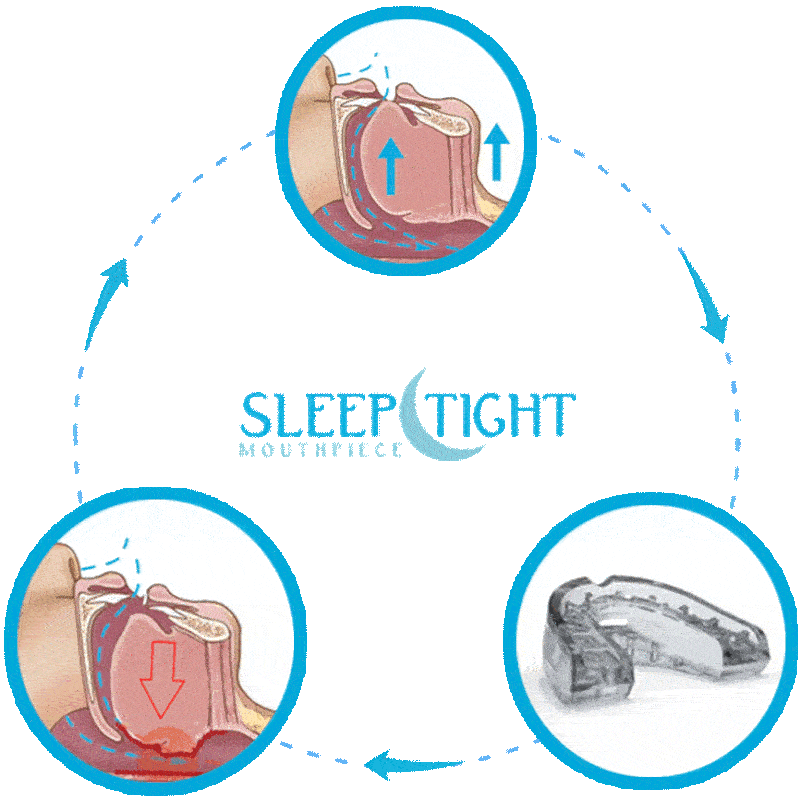Have you ever wondered why you sometimes wake up feeling refreshed and rested, while other times you still feel tired even after a full night’s sleep? Well, the answer might lie in understanding the different stages of sleep, particularly REM sleep. But what exactly is REM sleep and why is it so important for our overall well-being? In this article, we’ll delve into the fascinating world of REM sleep and explore its significance in helping us feel energized and rejuvenated.
During REM sleep, which stands for Rapid Eye Movement, our brain becomes highly active, almost as if it’s awake, while our body enters a state of temporary paralysis. This is the stage of sleep when most of our dreams occur, and our eyes move rapidly behind closed eyelids. While other sleep stages like non-REM sleep focus on physical restoration, REM sleep is crucial for our mental health and cognitive processes. It’s during this stage that our brains consolidate memories, process emotions, and regulate mood. So, if you’ve ever had a night of intense dreaming or vivid nightmares, you can thank REM sleep for those experiences. To learn more about the fascinating world of REM sleep and its importance in our daily lives, keep reading the article!

Understanding REM Sleep
REM (rapid eye movement) sleep is a fascinating and essential part of our sleep cycle. In this article, we will explore the ins and outs of REM sleep, its functions, and why it is crucial for our overall well-being.
Defining REM Sleep
REM sleep is one of the five stages of sleep that occur in a continuous cycle throughout the night. It is characterized by rapid eye movements, increased brain activity, and vivid dreaming. During this stage, our bodies are essentially paralyzed, with only our eyes and muscles responsible for breathing and vital functions active.
How REM Sleep Differs from Non-REM Sleep
While non-REM sleep is necessary for restorative functions, REM sleep is equally important, but for different reasons. Non-REM sleep consists of four stages, with the majority of deep sleep occurring in the earlier stages. REM sleep, on the other hand, happens later in the sleep cycle and is associated with dreaming and cognitive processes.
Duration of REM Sleep
During a typical night’s sleep, we go through several cycles of REM and non-REM sleep, with each cycle lasting approximately 90 minutes. The duration of REM sleep increases as the night progresses. Early in the night, the first REM period might last only a few minutes, but by the last cycle, it can extend to around an hour. On average, we spend about 20-25% of our total sleep time in REM sleep.
Stages of Sleep
To understand the significance of REM sleep, let’s briefly delve into the various stages of sleep.
Introduction to Sleep Stages
Sleep can be classified into two broad categories: REM sleep and non-REM sleep. Non-REM sleep is further divided into four stages, with stage 1 being the lightest and stage 4 being the deepest.
The Role of REM Sleep in Sleep Stages
REM sleep makes up the final stage of the sleep cycle and is unique because of its association with increased brain activity and vivid dreams. This stage is vital for emotional regulation, memory consolidation, and brain development.
Other Sleep Stages and Their Functions
Non-REM sleep stages are crucial for physical restoration, energy conservation, and growth hormone secretion. Stage 3, also known as deep sleep or slow-wave sleep, plays a significant role in repairing and rejuvenating the body.
Functions of REM Sleep
Now that we have established the importance of REM sleep let’s explore its specific functions.
Consolidation of Learning and Memory
REM sleep is closely linked to memory consolidation and learning. Studies have shown that the brain processes and consolidates newly acquired information during REM sleep, reinforcing memory traces and enhancing learning.
Emotional Regulation
REM sleep plays a crucial role in emotional regulation and processing. Dreams that occur during REM sleep provide a platform for the brain to process and integrate emotions, helping us navigate challenging experiences and regulate our emotional responses.
Brain Development
REM sleep is particularly important for brain development, especially in infants and young children. During this stage, the brain undergoes crucial neural connections and pruning processes, vital for healthy cognitive development.

REM Sleep Disorders
While REM sleep is essential, certain disorders can disrupt its normal functioning.
REM Sleep Behavior Disorder
REM sleep behavior disorder (RBD) is a condition in which the normal muscle paralysis during REM sleep is absent, resulting in individuals physically acting out their dreams. This can lead to injury and sleep disruption.
Sleep Paralysis
Sleep paralysis is a temporary inability to move or speak while waking up or falling asleep. It occurs when the transition between REM sleep and wakefulness is not synchronized correctly.
Nightmares and REM Sleep
Nightmares, which are vivid and disturbing dreams, predominantly occur during REM sleep. They can be a result of stress, trauma, or sleep disorders, causing sleep disturbances and emotional distress.
Factors Affecting REM Sleep
Several factors can influence the quality and duration of REM sleep.
Age and REM Sleep
As we age, the amount of time we spend in REM sleep gradually decreases. Newborns, for example, spend nearly 50% of their sleep in REM, while adults spend around 20-25%. Additionally, older individuals may experience more fragmented REM sleep.
Sleep Deprivation and REM Sleep
Lack of sufficient sleep can negatively affect REM sleep. Sleep deprivation can disrupt the natural sleep cycle, causing a decrease in REM sleep duration and impacting cognitive function and emotional well-being.
Medication and REM Sleep
Certain medications, such as antidepressants and beta-blockers, can interfere with REM sleep. These medications may suppress or prolong REM sleep, affecting its normal functions.
Health Benefits of Adequate REM Sleep
Adequate REM sleep has numerous benefits for our overall health and well-being.
Improved Cognitive Function
REM sleep plays a critical role in cognitive function, including memory, attention, and problem-solving abilities. Sufficient REM sleep has been linked to enhanced learning, creativity, and overall mental performance.
Enhanced Emotional Well-being
REM sleep is closely related to emotional regulation and psychological well-being. Satisfactory REM sleep can improve mood, decrease anxiety and stress, and help regulate emotions effectively.
Overall Physical Health
REM sleep promotes physical health by supporting immune function, regulating metabolism, and repairing and restoring the body. It is essential for growth and development, muscle repair, and the maintenance of a healthy cardiovascular system.
Methods to Enhance REM Sleep
To ensure adequate and quality REM sleep, incorporating these methods into your sleep routine may prove beneficial.
Establishing a Consistent Sleep Schedule
Maintaining a regular sleep schedule helps anchor your body’s internal sleep-wake cycle, ensuring a more consistent amount of REM sleep each night. Going to bed and waking up at the same time can help regulate your sleep stages.
Creating a Relaxing Sleep Environment
A comfortable and serene sleep environment enhances REM sleep. Make sure your bedroom is cool, dark, and quiet. Remove electronic devices, and consider using techniques like meditation or relaxation exercises before bed.
Managing Stress and Anxiety
Stress and anxiety can disrupt REM sleep. Implementing stress management techniques, such as regular exercise, mindfulness, or therapy, can alleviate these issues and enhance the quality of REM sleep.
Sleep Disorders and REM Sleep
Certain sleep disorders can directly impact REM sleep and its functions.
Insomnia and REM Sleep
Insomnia is a sleep disorder characterized by difficulty falling asleep or staying asleep. It can lead to fragmented sleep and a decrease in REM sleep duration, impacting cognitive function and emotional well-being.
Sleep Apnea and REM Sleep
Sleep apnea is a condition where breathing repeatedly stops and starts during sleep. It can reduce the amount of REM sleep and lead to daytime sleepiness, memory problems, and mood disturbances.
Narcolepsy and REM Sleep
Narcolepsy is a neurological disorder characterized by excessive daytime sleepiness and sudden episodes of sleep. Individuals with narcolepsy may experience rapid entry into REM sleep, even during waking hours.
REM Sleep in Different Species
REM sleep is not unique to humans; it is observed in various species.
REM Sleep Patterns in Humans
Humans typically experience REM sleep for around 90-120 minutes per night, with each REM phase lasting between 5 to 30 minutes. This pattern can vary individually, but the overall duration and structure remain consistent.
REM Sleep in Animals
Many animals, such as cats, dogs, and birds, also experience REM sleep. However, the duration and characteristics of REM sleep can differ significantly among species.
Comparing REM Sleep Across Species
Comparing REM sleep across species can provide insights into the evolution and functions of this sleep stage. It highlights the commonalities and differences in REM sleep characteristics and its varying importance across different organisms.
Conclusion
REM sleep is a vital component of our sleep cycle, playing a crucial role in memory consolidation, emotional regulation, and brain development. Understanding the functions and factors influencing REM sleep can help us prioritize its importance in our daily lives. By incorporating healthy sleep practices and addressing sleep disorders, we can enhance our REM sleep, leading to improved cognitive function, emotional well-being, and overall physical health. So, make sure to prioritize your REM sleep and enjoy the benefits it brings.



